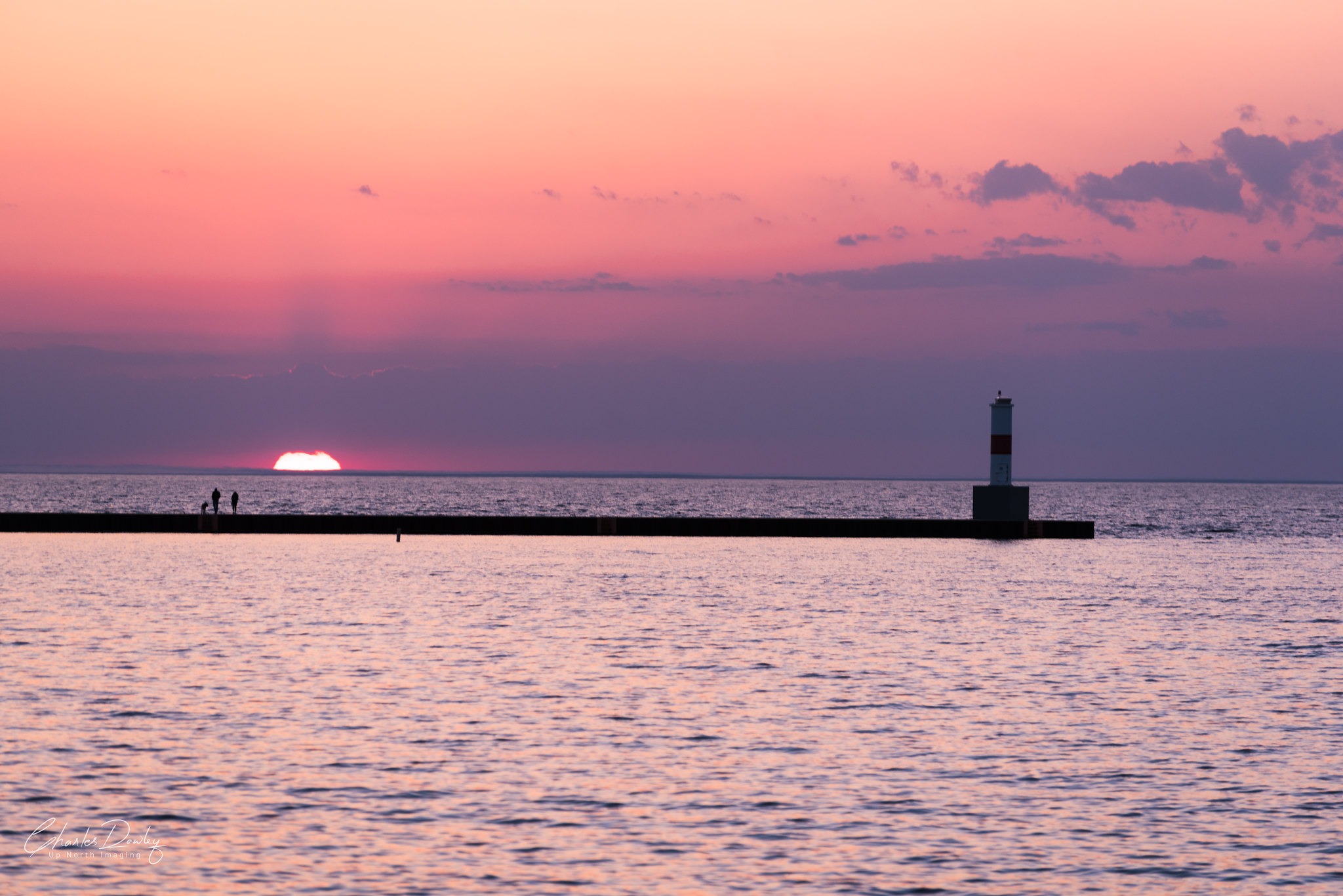The scene: A real estate office in New Buffalo, Michigan.
A young man is there to rent a cottage by the beach. Suddenly, a suntanned jagoff pulls up to the curb in a Porsche with Michigan plates, and walks inside.
“Where are you from?” the Porsche’s driver asks the prospective tenant.
“Lansing.”
“Ahhh.” Eyebrows go up. “I’m from Posen.”
“No, not Lansing, Illinois; Lansing, Michigan.”
Sitting on the couch is a workman in paint-spatted Carhartt overalls. He lifts two thumbs up.
“Point for you,” he tells the young man.
It’s just another episode in New Buffalo’s longest-running culture clash: the FIPs vs. the natives. Michigan plates on a Porsche don’t fool anyone: that’s a FIP car. Real Michiganders drive American. FIP is an acronym for F—ing Illinois People: Michiganders’ nickname for the Chicagoans who invade Harbor Country every summer in gleaming SUVs, hogging all the prime lakefront real estate on the sunset side of US-12, and queueing into interminable lines at Oink’s Ice Cream parlor. Locals joke about “FIP spotting,” and opening a “No FIPs Cafe,” with service limited to patrons who can produce a Michigan driver’s license. Someone once spray-painted “FIPS GO HOME” on the I-94 Exit 6 overpass near Union Pier. Famous FIPs include Mayor Richard M. Daley, whose family owns a Grand Beach cottage that was the scene of a violent party hosted by his then-16-year-old son Patrick; Sun-Times movie critic Roger Ebert, who spent his TV money on a $4 million Tudor “cottage” in Harbert; Carl Sandburg, a proto-FIP, who moved from Elmhurst to Harbert in 1928 to write his Abraham Lincoln biography; and Ernest Hemingway, an even earlier proto-FIP whose childhood vacations near Petoskey helped lay the groundwork for his idea of American masculinity and rugged leisure.
“The influence of Chicagoans on this slightly populated, almost rural section of Michigan–full-time population 7,000; summertime population 25,000 to 35,000–is formidable,” the Chicago Reader observed in a 1988 article titled “Invasion of the FIPs: boom time in southwestern Michigan.” “One local newspaper estimates that Chicago-area residents, all of them nonvoters, make up more than half the area’s taxpayers and pay more than 60 percent of its local tax load. Out-of-pocket spending by Chicagoans just for the 14-week summer season can be conservatively estimated at $15 million to $25 million, or $2,000 to $3,500 per capita for each permanent resident. Chicago tourists and second-home owners are quite clearly the area’s biggest industry…. Beyond the summer people/local people cultural clash–inevitable in any resort community–there is some concern that the Chicago invasion could get out of hand, overrun the beaches, tear down the forests, gentrify the nearby fruit farms, unbalance the economy, and bring in an ugly invasion of fast-food franchises and other tacky tourist trappings like those marring Cape Cod.”
All those concerns have been realized. The FIPs have conquered New Buffalo, transforming it from rural fruit-orchard village to far-flung suburb of Chicago. It is now home to the Four Winds Casino—the tackiest tourist trapping imaginable—which draws FIPs to the area year-round. Three Oaks is a village of 1,600 with five art galleries, nine restaurants and two bed and breakfasts—mostly patronized by FIPs. FIPs have so priced up Harbor Country real estate that some natives have no choice but to move to Indiana if they want to stay in the area.
(Further north in Michigan, tourists are known as “fudgies,” for their love of Mackinac Island fudge. Kilwins, a fudge shop founded in Petoskey in 1947, has brought its product directly to the fudgies by opening stores in Evanston, Lake View, Hyde Park and Navy Pier. A tourist who settles in northern Michigan is a “permafudge.”)
The scene: A fish boil at the Viking Grill and Lounge in Ellison Bay, Wisconsin, near the tip of Door County.
Master boiler Dan Peterson stands beside his kettle—a Speed Queen washing machine tub, which holds twenty gallons of water, plenty for the 40 or 50 trays he fills every hour for tourists who’ve driven five hours to escape Chicago’s congestion—only to create bumper-to-bumper traffic jams on Wisconsin Highway 42.
Dan is a second-generation master boiler, having inherited the craft from his father. When he was growing up, in the 1940s and ’50s, “we didn’t have a lot of tourism. A lot of the homes that people grew up in, they’re all gift shops or restaurants. There’s no farming anymore. Even on Washington Island there’s no milking cows.”
Some locals call the tourists “turkeys,” because their heads swivel back and forth as they take in the view from their car windows. They blame a 1969 National Geographic article for ruining the idyll. Natives carp that Door County is “going to become another Wisconsin Dells,” an overdeveloped tourist trap of water slides and go-kart tracks. Dan doesn’t disdain the visitors—they keep his restaurant open. He seems resigned to the forces drawing Door County closer to the urban world.
“The ways of Chicago are the ways of Door County,” he says. “We never had inspectors inspecting electrical, but they’re here now.”
“Turkeys” is the kindest epithet I’ve heard Cheeseheads apply to Chicagoans. More common—and more barbed—is FIB, an acronym for F—-ing Illinois Bastard. And then there’s FISHTAB — F—ing Illinois S—head Towing A Boat — for the weekend anglers hauling their Starcrafts to one of Wisconsin’s little lakes.
Yes, Chicagoans, depending where we are in the Midwest, our Illinois plates mark us as FIPs, FIBs, FISHTABs or Fudgies. Our neighbors are angry that their children moved here, abandoned their hometown ways, and turned into FIPs, FIBs, FISHTABs and Fudgies themselves. They’re angry that we’ve imposed our urban values on their once-isolated rural fastnesses. Chicago has conquered the Midwest. Those bitchy names are revenge for our regional imperialism.



